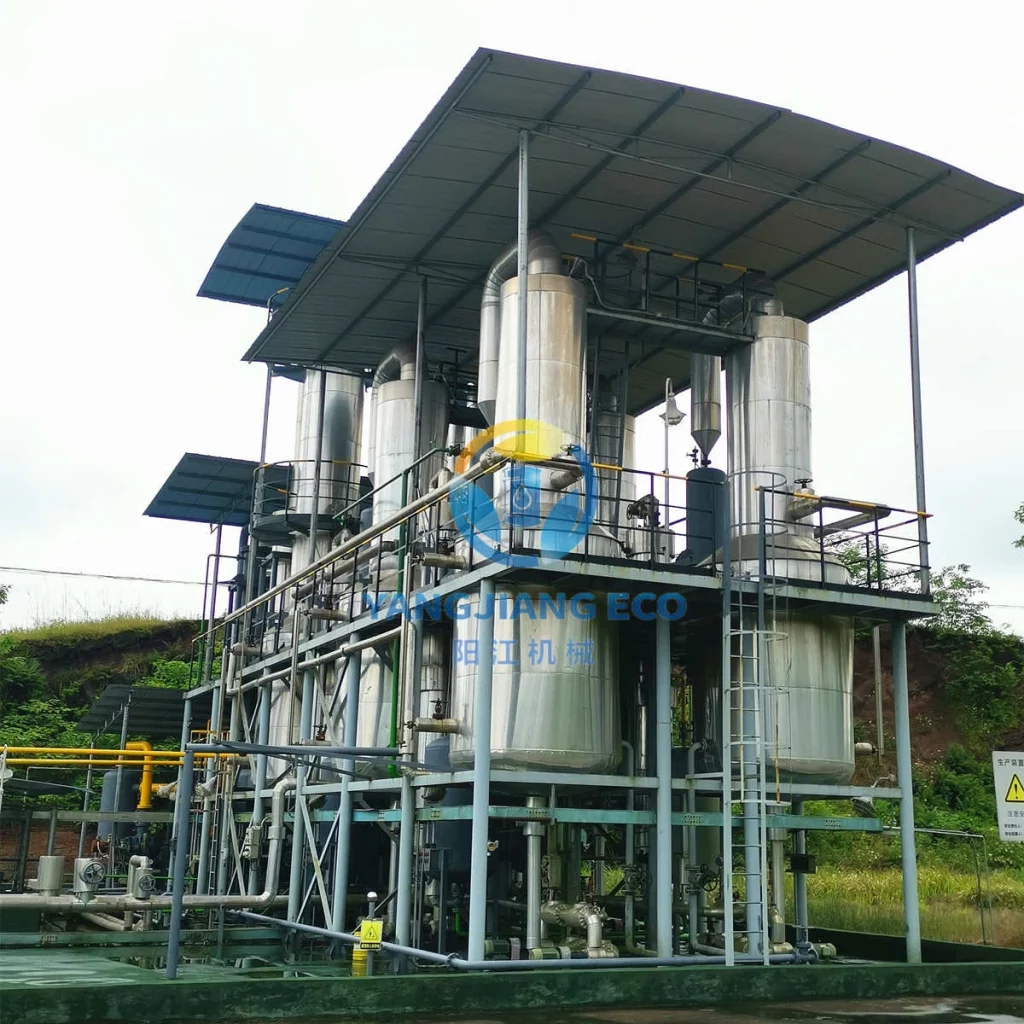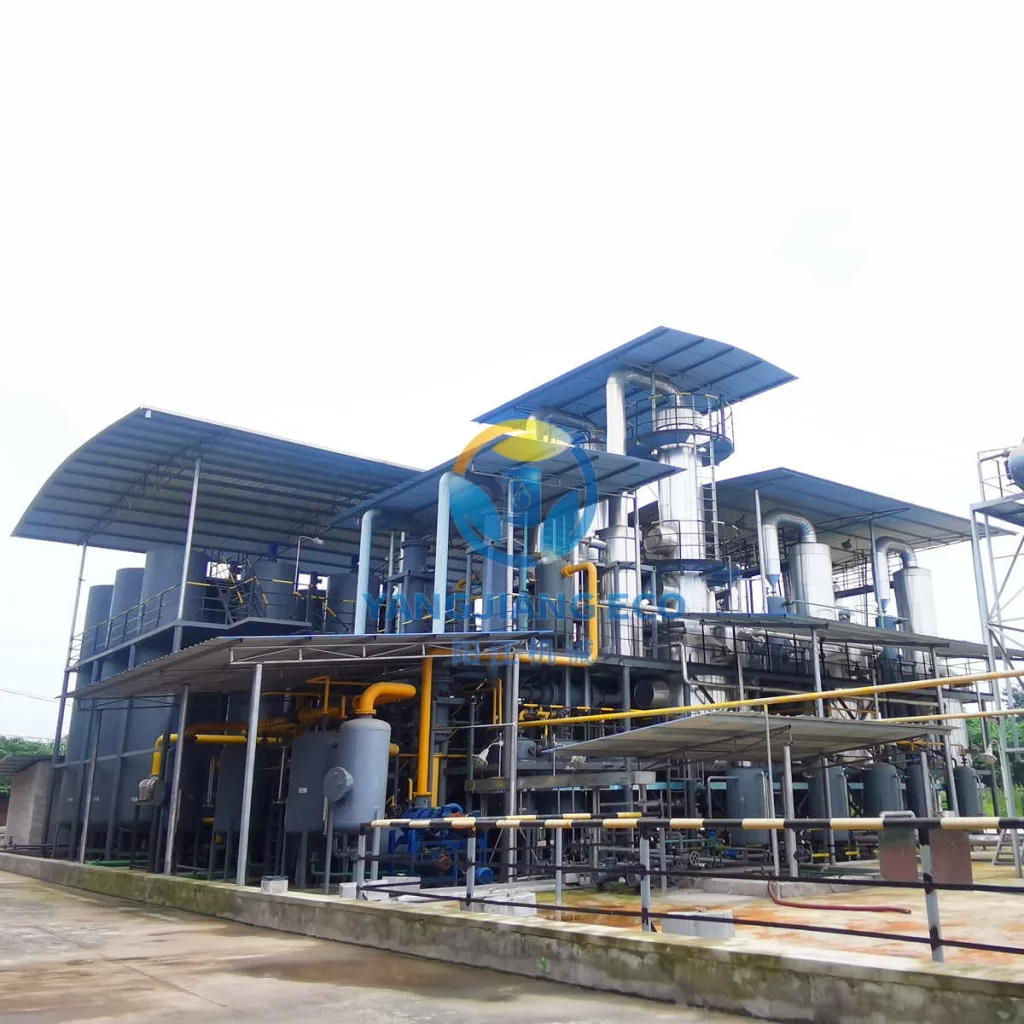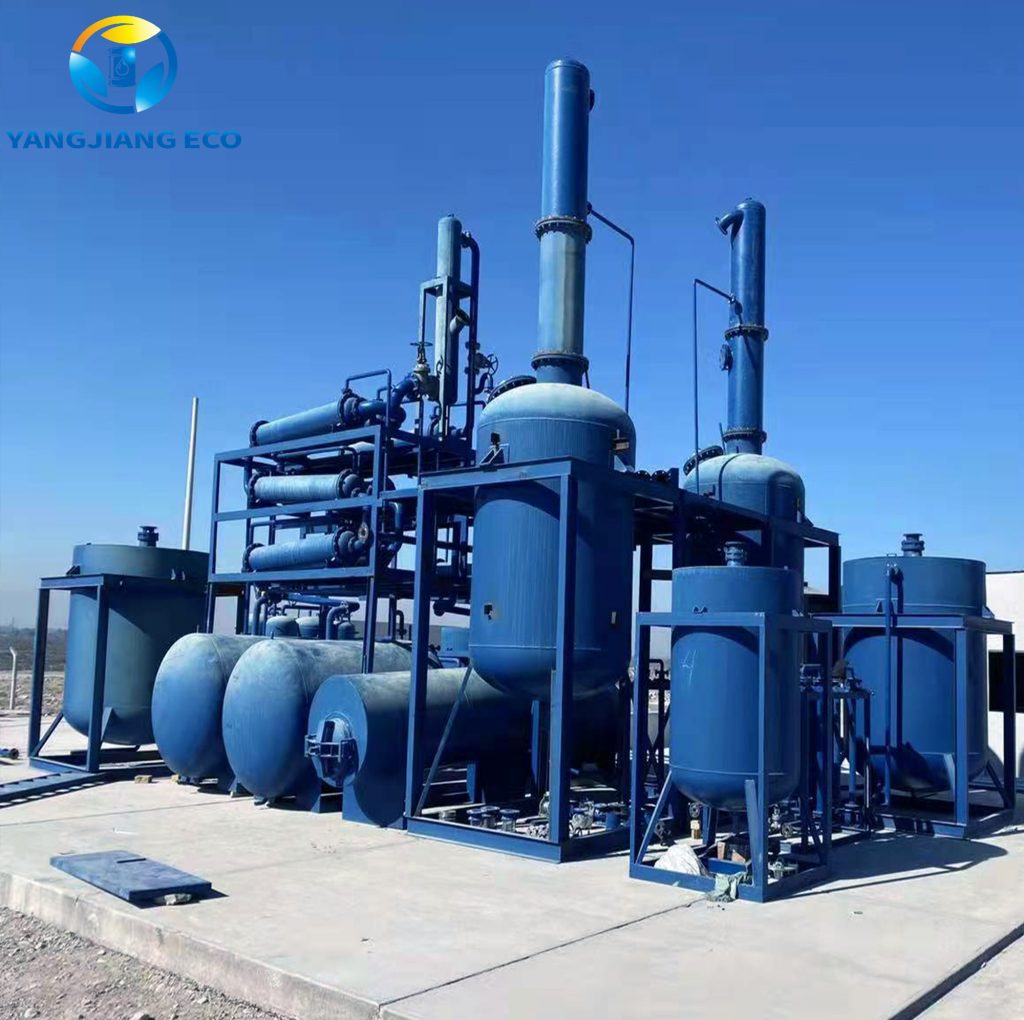In today’s environmentally conscious and strictly regulated industrial environment, the need for clean fuels has become essential. Diesel is a common fuel source used by many industries, and its high sulfur content has a significant impact on air pollution. Therefore, diesel desulfurization has become particularly important. Diesel desulfurization machines are now commonly used to complete this complex process. By using diesel desulfurization machines, companies can reduce sulfur levels in diesel fuel, leading to both environmental and economic benefits.
What is Diesel Desulfurization?
Sulfur is naturally present in crude oil, and when crude is refined into diesel fuel, it often retains significant amounts of sulfur compounds. These sulfur compounds, primarily sulfur dioxide (SO2) and sulfur oxides (SOx), are pollutants that contribute to air pollution, acid rain, and respiratory issues in humans. The presence of sulfur in diesel also accelerates the wear and tear of engine components, reducing efficiency and lifespan.
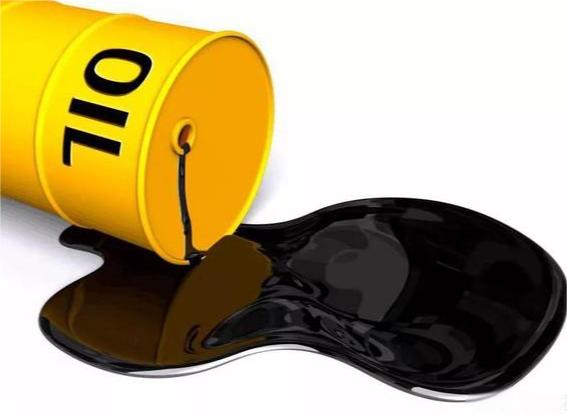
To address these concerns, desulfurization technologies are employed to remove or reduce sulfur from the fuel. One of the most common methods is Hydrodesulfurization (HDS), which involves using hydrogen and a catalyst under high pressure and temperature to convert sulfur compounds into hydrogen sulfide (H2S), which can then be removed. Another method, adsorption, uses materials like activated carbon or metal-organic frameworks (MOFs) to capture and remove sulfur compounds from the diesel.
By effectively reducing sulfur content, desulfurization not only ensures compliance with strict environmental regulations but also enhances the combustion quality of diesel. This results in cleaner emissions, better fuel efficiency, and prolonged engine life, contributing to both environmental and economic benefits.
Why Use Diesel Desulfurization Machines?
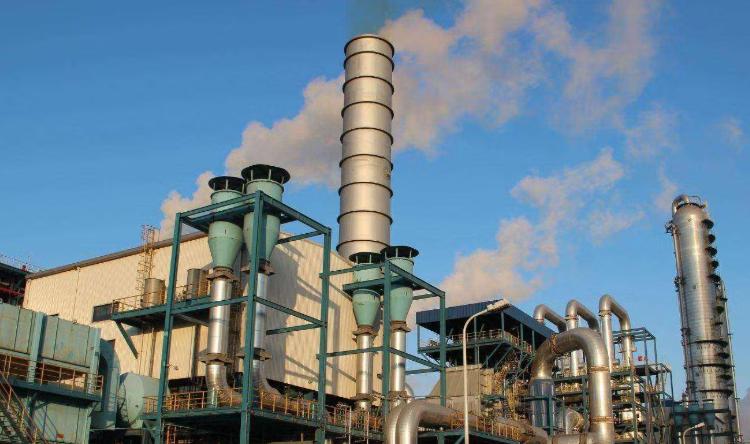
Diesel desulfurization machines have become a critical tool for industries reliant on diesel fuel, and their importance extends far beyond mere compliance with environmental regulations. Here’s why businesses are increasingly turning to this technology:
- Cleaner Air and Health Benefits: Sulfur emissions from diesel fuel contribute significantly to air pollution, which can be harmful to both the environment and human health. Businesses can drastically reduce harmful emissions such as sulfur dioxide (SO2), which have been related to respiratory problems, acid rain, and other environmental concerns, by lowering the sulfur content. This is critical for enterprises located in metropolitan areas or locations with high population density, where air quality is a major problem.
- Enhanced Fuel Performance: Diesel desulfurization not only makes fuel cleaner but also improves its overall performance. Low-sulfur diesel burns more efficiently, leading to better engine performance, reduced exhaust smoke, and fewer emissions. As a result, engines tend to last longer, experience less wear, and require less frequent maintenance, which can lower long-term operational costs for businesses.
- Extended Equipment Lifespan: Sulfur can cause corrosion and damage to engines, fuel injectors, and other components, requiring frequent maintenance and costly repairs. Low-sulfur diesel reduces wear and tear, prolonging the life of machines and minimizing downtime.
- Sustainability and Corporate Responsibility: Using desulfurized diesel is a crucial step toward lowering a company’s carbon footprint. Businesses that commit to green initiatives can improve their public image and attract environmentally sensitive clients by implementing cleaner fuel technology.
In short, diesel desulfurization machines provide a practical solution for businesses looking to stay compliant, improve fuel quality, and contribute to environmental sustainability while boosting operational efficiency.
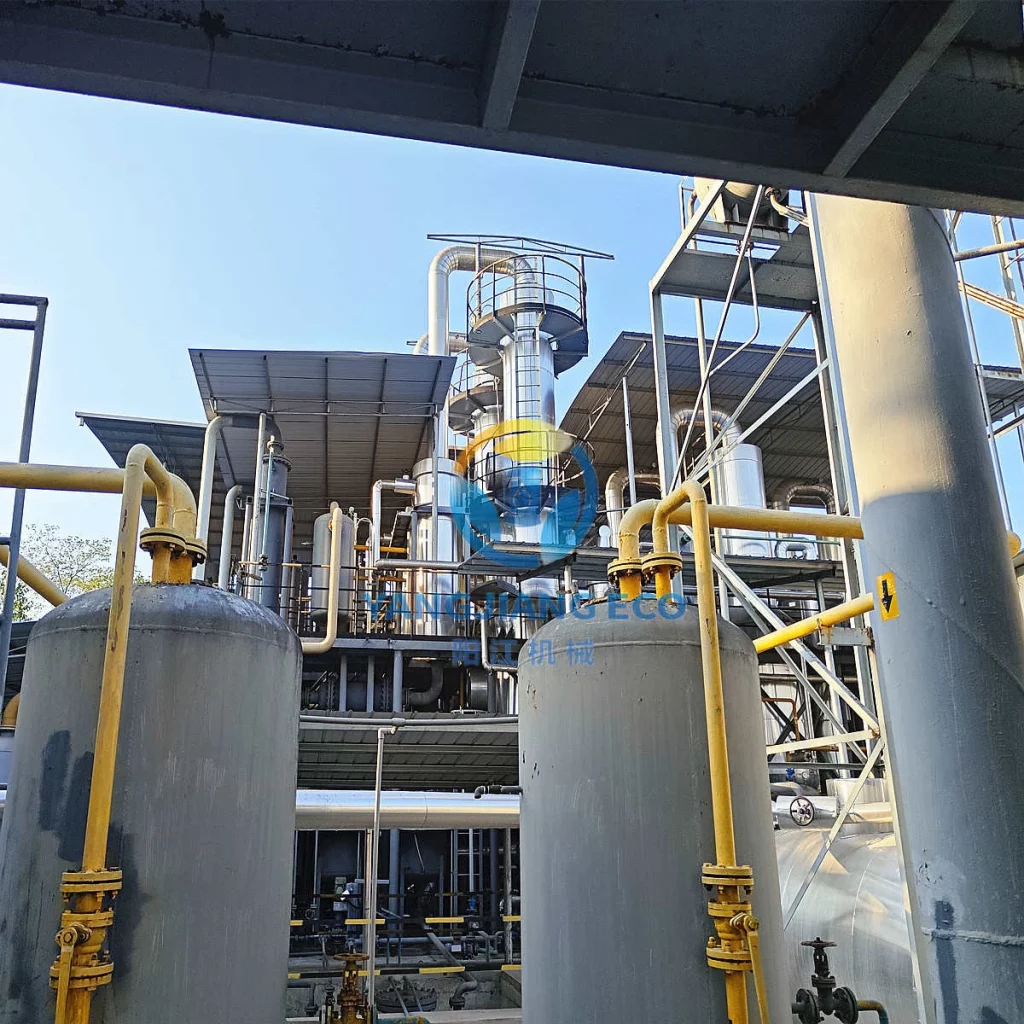
Economic Benefits of Using Diesel Desulfurization Machines
The economic advantages of diesel desulfurization machines are profound. Here are several key financial benefits that companies can gain from investing in these technologies:
| Benefit | Description | Impact on Business |
| Cost Savings on Fuel | Low-sulfur diesel burns more efficiently, reducing fuel consumption. | Lower fuel expenses and improved fuel economy. |
| In-House Processing Savings | Desulfurizing diesel in-house eliminates the need to purchase pre-treated low-sulfur diesel. | Reduces dependency on external suppliers and cuts procurement costs. |
| Extended Equipment Lifespan | Low-sulfur diesel reduces engine corrosion and wear, minimizing maintenance needs. | Decreases repair costs and extends the operational life of machinery. |
| Regulatory Compliance Savings | Avoid fines and penalties by meeting strict sulfur emission standards (e.g., Euro 6, EPA). | Prevents costly legal issues and ensures uninterrupted operations. |
| Increased Operational Efficiency | Cleaner fuel improves engine performance, reducing downtime and boosting productivity. | Enhances overall operational output and reduces losses due to equipment failure. |
| Enhanced Market Reputation | Demonstrating a commitment to sustainability can attract eco-conscious customers and partners. | Opens new business opportunities and strengthens brand value. |
| Long-Term ROI | While the initial investment may be high, the long-term savings on fuel, maintenance, and compliance deliver a strong return. | Provides a cost-effective solution with significant financial benefits over time. |
In summary, the economic benefits of using diesel desulfurization machines are clear. From regulatory compliance and lower operational costs to improved fuel efficiency and enhanced competitiveness, businesses can see both short-term and long-term financial gains.
Do You Need Invest in a Diesel Desulfurization Machine?

Investing in a diesel desulfurization machine is a strategic decision that can deliver significant benefits for your business. But how do you know if it’s the right choice for you? Here are some key considerations:
- Regulatory Compliance: If your industry is subject to strict sulfur emission standards, such as Euro 6 or EPA regulations, a desulfurization machine is essential to avoid fines and ensure compliance.
- High Fuel Consumption: Businesses that use large volumes of diesel will see a faster return on investment through reduced fuel costs and improved efficiency.
- Sustainability Goals: Companies committed to reducing their environmental impact can leverage desulfurization technology to lower emissions and enhance their green credentials.
- Equipment Longevity: High-sulfur diesel can damage engines and fuel systems, leading to costly repairs. A desulfurization machine helps extend the lifespan of your machinery, saving on maintenance costs.
When investing in a diesel desulfurization machine, it’s crucial to partner with a reliable manufacturer. YANGJIANG stands out as a leading producer of high-quality desulfurization machines, known for their innovative designs, durability, and exceptional performance. With years of expertise and a commitment to customer satisfaction, YANGJIANG provides tailored solutions to meet your specific needs.
Ready to take the next step? Contact us now to explore their range of advanced diesel desulfurization machines and find the perfect fit for your business!
Recommended Products

